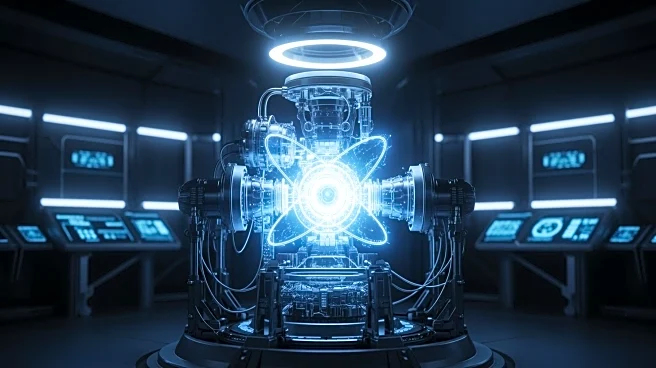What's Happening?
Physicists have rewritten a 200-year-old principle of thermodynamics, originally developed by French physicist Nicolas Léonard Sadi Carnot, to create atomic engines that could power future nanobots. The Carnot principle, which determines the maximum efficiency
of heat engines, has been extended to describe objects on the atomic scale, such as strongly correlated molecular motors. This breakthrough provides a unified formalism to determine the efficiency of correlated microscopic quantum machines, potentially revolutionizing the field of nanotechnology and quantum mechanics.
Why It's Important?
This development is crucial as it challenges long-standing thermodynamic limits, opening new possibilities for the design and efficiency of microscopic machines. The ability to harness atomic-scale engines could lead to significant advancements in nanotechnology, impacting industries such as medicine, electronics, and materials science. Nanobots powered by these engines could perform complex tasks at the molecular level, offering solutions in drug delivery, environmental monitoring, and precision manufacturing. The broader implications could reshape technological capabilities and drive innovation across multiple sectors.














